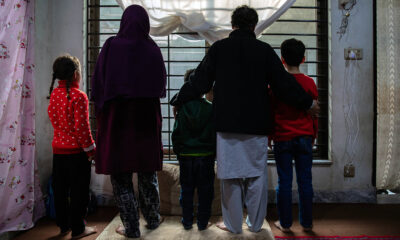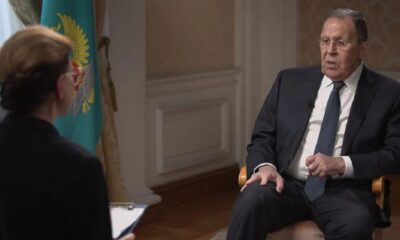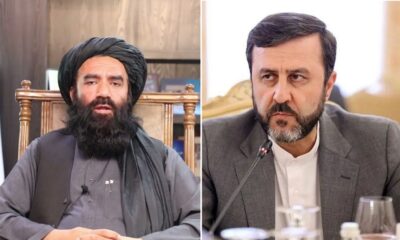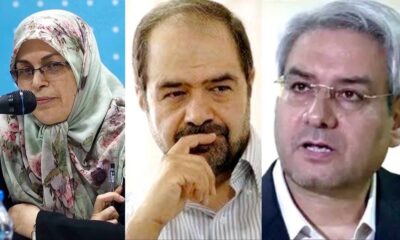Latest News
US cancels talks with IEA over U-turn on girls’ education
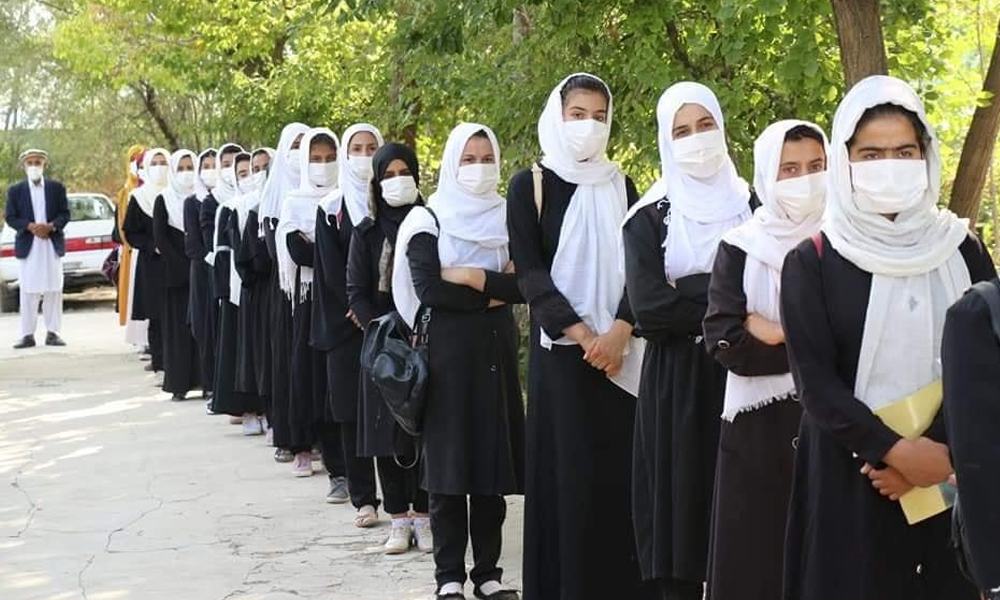
The United States abruptly cancelled meetings with the Islamic Emirate of Afghanistan (IEA), in Doha that were set to address key economic issues, officials said on Friday, after Afghanistan’s IEA rulers reversed a decision to allow all girls to return to high school classes, Reuters reported.
The cancellation of talks was the first concrete sign that recent IEA moves on human rights and inclusivity could directly impact the international community’s willingness to help the group, some of whose leaders are under U.S. sanctions.
“Their decision was a deeply disappointing and inexplicable reversal of commitments to the Afghan people, first and foremost, and also to the international community,” a U.S. State Department spokesperson told Reuters.
“We have cancelled some of our engagements, including planned meetings in Doha, and made clear that we see this decision as a potential turning point in our engagement.”
Three sources familiar with the matter told Reuters that the series of meeting between U.S. and IEA administration officials were set to take place on the sidelines of a conference in Qatar’s capital on Saturday and Sunday.
Some of the meetings were to have included United Nations and World Bank representatives, the sources added.
An Afghan foreign ministry spokesman confirmed that an IEA delegation, including the acting foreign minister, had been expecting to go to Doha, Reuters reported.
The talks were designed to cover issues including the independence of the Afghan central bank and the printing of Afghani currency bank notes.
Also up for discussion were a humanitarian exchange facility to free up cash and hundreds of millions of dollars of funding currently held in a World Bank Trust Fund that is earmarked for Afghanistan’s education sector, according to the three sources.
They declined to be named because they were not authorised to speak with the media.
“The Qatari jet that was meant to collect Muttaqi’s delegation in Kabul has not turned up,” said a diplomatic source, referring to Acting Foreign Minister Amir Khan Muttaqi.
The Qatari government’s communications office did not immediately respond to a request for comment.
The move shows the headwinds the Islamic Emirate (IE)
administration faces in accessing foreign aid and freeing up the banking sector. Hard currency shortages have fuelled inflation and worsened the economic crisis.
The IEA have also been unable to access billions of dollars in foreign reserves held overseas as governments including the United States refuse to fully recognise them.
In addition to the crippled financial system, the sharp drop in development funding that once amounted to billions of dollars and helped the Afghan government to function has exacerbated food shortages and poverty.
Roughly 23 million people are experiencing acute hunger and 95% of the population are not eating enough food, according to the United Nations.
Washington and its allies have insisted that the IEA, who banned girls from school and most women from work the last time they ruled, improve their human rights record.
The Islamic Emirate (IE) says it will honour everyone’s rights within its interpretation of Islamic law and has vowed to investigate specific allegations of abuse.
The IEA on Wednesday backtracked on their previous commitment to open high schools to girls, saying that they would remain closed until a plan was drawn up for them to reopen.
The U-turn shocked many, leaving students in tears and sparking small protests by girls in Kabul. It also drew condemnation from humanitarian agencies and foreign governments.
“They are definitely shooting themselves in the foot,” said Graeme Smith, a senior consultant at International Crisis Group, of the decision on girls’ education.
A major donor summit for humanitarian aid is set to take place this month, co-hosted by Britain, in an effort to help raise $4.4 billion in funding the United Nations says it needs to meet urgent needs in the country.
Diplomats and aid groups fear that the war in Ukraine, combined with the IEA’s decision on girls’ schooling, will make it harder to raise the money.
“The decision is understandable,” John Sifton of Human Rights Watch said of the U.S. move. “The U.S. and other donors need to communicate to the Taliban that their actions are unacceptable.”
“At the same time, the cancellation of this important meeting is tragic … The Afghan economy has collapsed, and millions are facing acute malnutrition. People are dying of starvation every day.”
Latest News
FM Muttaqi meets Uzbek Central Asia Institute Chief, stresses stronger bilateral cooperation
During the meeting, the two sides discussed ways to further strengthen political and economic cooperation, as well as key regional issues.
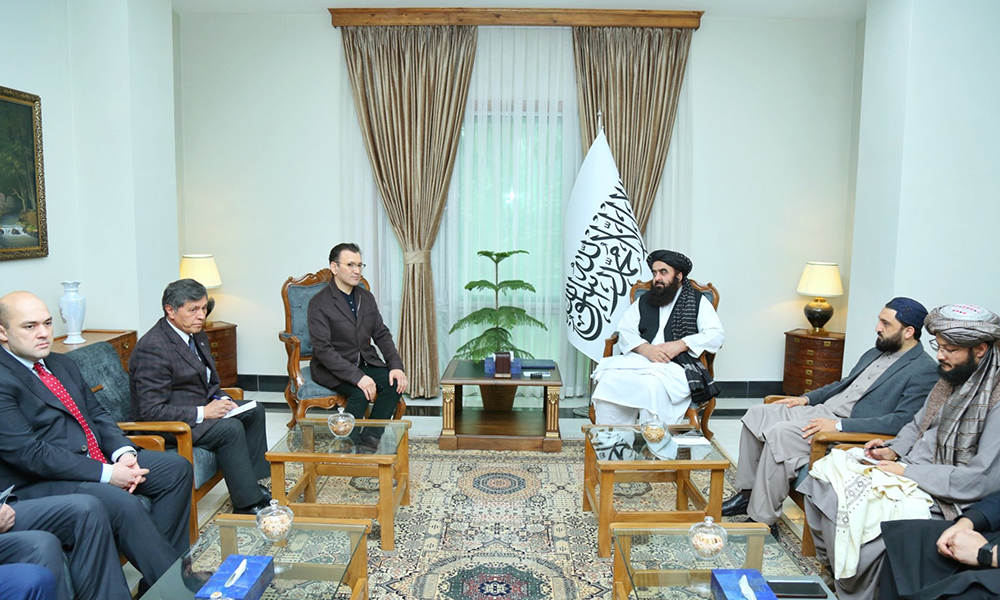
Afghanistan’s Minister of Foreign Affairs, Amir Khan Muttaqi, has met with a delegation led by Joulan Vakhabov, head of Uzbekistan’s International Institute of Central Asia and adviser to the country’s deputy president.
During the meeting, the two sides discussed ways to further strengthen political and economic cooperation, as well as key regional issues.
Muttaqi said Uzbekistan has adopted a positive and goodwill-based policy toward Afghanistan, expressing hope that bilateral relations and cooperation would continue to expand.
He also underscored the important role of research institutions in promoting mutual understanding, enhancing cooperation, and developing a realistic assessment of regional dynamics.
For his part, Vakhabov praised the progress and stability in Afghanistan and voiced optimism that trade between the two countries would increase further in the current year.
Latest News
Pakistan to repatriate nearly 20,000 Afghans awaiting US resettlement
Authorities will also share verified data of the affected individuals with relevant departments to support implementation.
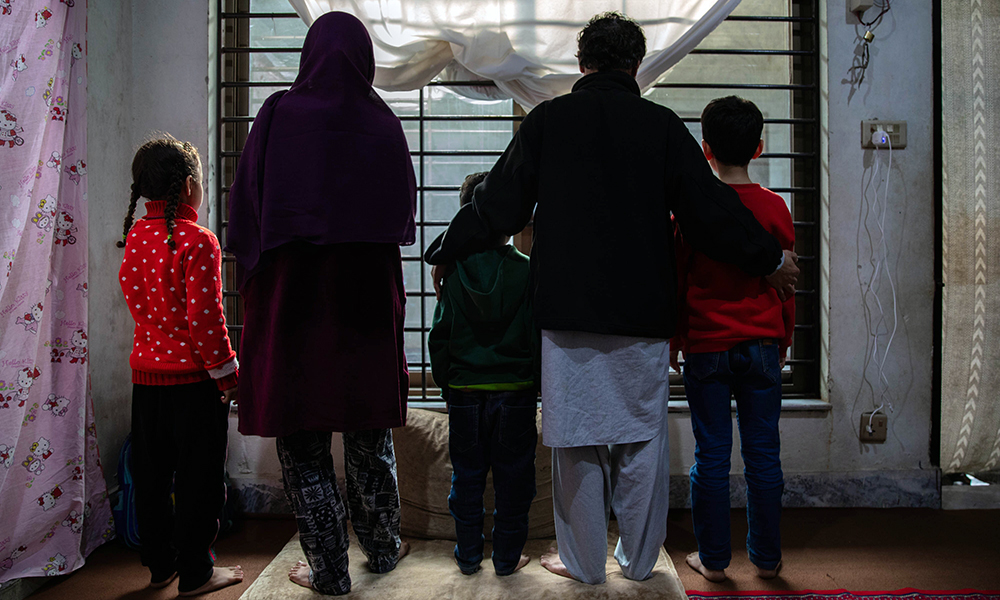
Pakistan will repatriate nearly 20,000 Afghan nationals currently awaiting resettlement in the United States, The Nation reported, citing official sources.
The move affects 19,973 Afghans living across Pakistan.
A federal directive will instruct provincial chief secretaries and police chiefs in Punjab, Sindh, Khyber Pakhtunkhwa, Balochistan, Azad Kashmir, Gilgit-Baltistan, and the Islamabad Capital Territory to begin the repatriation process immediately.
Authorities will also share verified data of the affected individuals with relevant departments to support implementation.
Following the Islamic Emirate’s return to power in 2021, more than 100,000 Afghans fled to Pakistan, many of whom had worked with the US and UK governments, international organizations, or aid agencies.
Thousands have remained stranded in Pakistan for over four years while awaiting US resettlement clearance.
Prospects for relocation have dimmed amid a suspension of case processing by the US administration, according to The Nation.
Under Pakistan’s Illegal Foreigners Repatriation Plan (IFRP), all Afghan nationals still awaiting US relocation will now be returned to Afghanistan.
Latest News
Terrorist activities observed along Afghanistan borders, says Lavrov
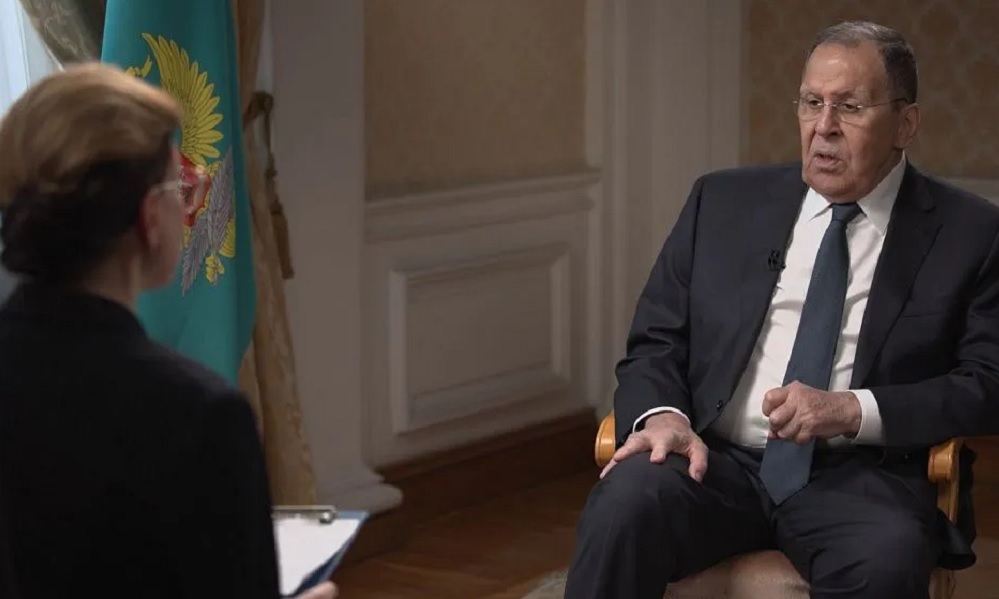
Terrorist activities continue to be observed along Afghanistan borders and along the India–Pakistan–Afghanistan corridor, Russian Foreign Minister Sergei Lavrov said in an interview published on Monday.
Speaking to Russia-based media outlet TV BRICS, Lavrov pointed to ongoing concerns in the Middle East, including its Asian regions.
He highlighted the importance of collaboration with India at the United Nations to advance a global counter-terrorism convention.
Lavrov stated that while the draft convention has already been prepared, consensus on its adoption has not yet been reached.
Russia has repeatedly expressed concern about militant threats from Afghanistan. The Islamic Emirate, however, has dismissed the concerns saying that it will not allow Afghanistan’s soil to be used against any country.
-

 Latest News3 days ago
Latest News3 days agoAfghanistan to grant one- to ten-year residency to foreign investors
-

 Sport4 days ago
Sport4 days agoIndonesia shock Japan to reach historic AFC Futsal Asian Cup final
-

 Sport5 days ago
Sport5 days agoMilano Cortina 2026 Winter Olympics: What You Need to Know
-

 Sport3 days ago
Sport3 days agoIran clinch AFC Futsal Asian Cup 2026 in penalty shootout thriller
-
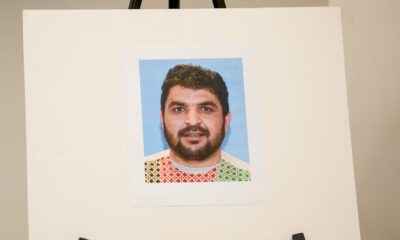
 Latest News5 days ago
Latest News5 days agoUS Justice Department to seek death penalty for Afghan suspect in National Guard shooting
-

 Latest News3 days ago
Latest News3 days agoAfghanistan says Pakistan is shifting blame for its own security failures
-
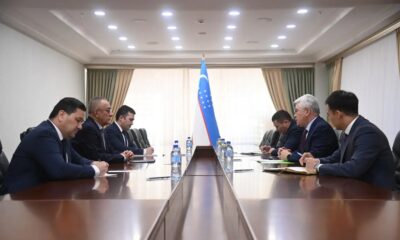
 Latest News5 days ago
Latest News5 days agoUzbekistan, Kazakhstan discuss cooperation on Afghanistan
-

 Latest News5 days ago
Latest News5 days agoAfghanistan facing deepening hunger crisis after US Aid Cuts: NYT reports




